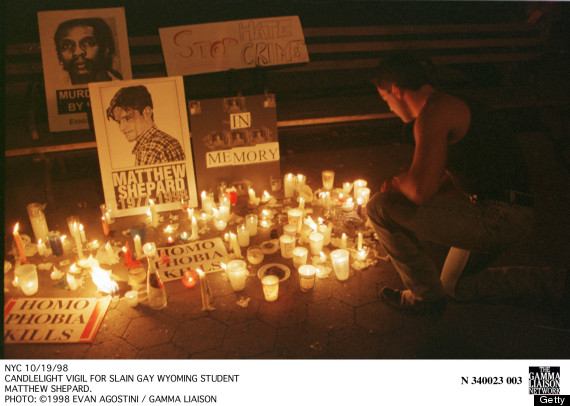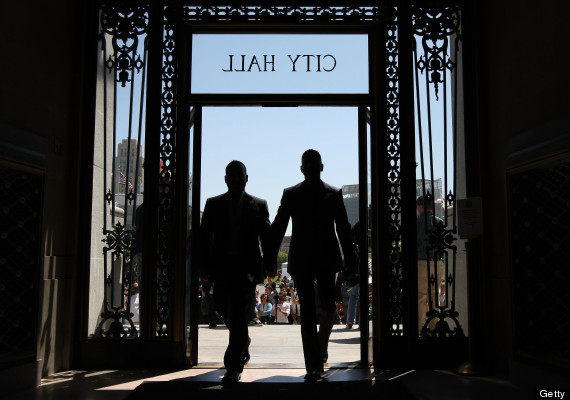
From the days of the Stonewall Riots to the current battle for marriage equality across the United States, the struggle for lesbian, gay, bisexual and transgender (LGBT) rights has a rich history -- and is far from over.
However, social and political victories over the past several decades have seen LGBT individuals make gains in society that would have been considered virtually unthinkable only a generation ago.
As we move forward from LGBT History Month and into Transgender Awareness Month, we're taking a look back on some of these landmark moments throughout the course of the modern LGBT movement -- as well some of the many things that have yet to be accomplished.
Here are eight things LGBT people couldn't do in 1985 -- and seven things they still can't do.
In 1985, LGBT individuals couldn't:
1. Serve Openly In The MilitaryPresident Barack Obama signed the repeal of "Don't Ask, Don't Tell" in September 2011, reversing President Bill Clinton's 1993 legislation.
2. Have Sex Without The Risk Of Being ArrestedThe landmark case Lawrence v. Texas set a precedent that criminalizing two consenting adults of the same sex for engaging in sexual or intimate conduct violates their liberty under the Due Process Clause.
3. Be Protected Under Hate Crime LegislationThe Matthew Shepard & James Byrd Jr. Hate Crimes Prevention Act expanded federal hate crime protection to cover assault based on sexual orientation, gender and gender identity.

4. Get Married...in any state in the country.
5. Be Protected As A Transgender ChildCalifornia Gov. Jerry Brown signed a groundbreaking bill in August 2013 that enabled transgender youth to both use the bathroom and play on the sports teams that corresponds with their gender identity (cue right wing freak out).
6. Visit A Same-Sex Spouse In The HospitalIn 2010, President Obama ordered that hospitals receiving Medicare and Medicaid payments must grant patients the right to designate whom can visit and consult with them, enabling hospital visitation rights for same-sex couples.

7. Come Out As A Celebrity Without BacklashWhile coming out is framed by a different set of identities and experiences for all individuals, it is arguably much easier for famous people to come out in 2013 than it was 30 years ago.
8. Identify As Transgender Without Being Classified As Having A Mental DisorderThe American Psychiatric Association announced in December 2012 that identifying as transgender is no longer considered a disorder.
In 2013, LGBT individuals still can't:
1. Be Safe From Being Fired Simply Because They're Gay Or TransgenderWhile legislators are currently debating the Employment Non-Discrimination Act, it is still not institutionalized as law.
2. Get Married...in 36 states.

3. Be Parents In Many StatesWhile it varies from state to state, many don't allow joint adoption or co-adoption by same-sex parents. There are no laws protecting transgender parents wishing to adopt.
4. Donate BloodDue to fears concerning HIV/AIDS, gay and bisexual men have not been able to donate blood for over 30 years.
5. Serve In The Military As TransgenderGender identity is still taboo in the ranks of the United States military.

6. Have Same-Sex Conjugal Visits...unless you're imprisoned in New York or California.
7. Be Served By All BusinessesIt is still legal in many states for a business to refuse service to LGBT people because of a lack of laws protecting against discrimination in public accommodations, including housing.